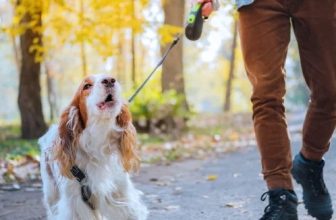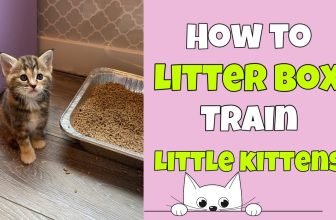How Do You Train a Puppy to Stop Biting: Quick Tips

How Do You Train a Puppy to Stop Biting? Puppies are playful and curious. They often use their mouths to explore the world.
However, biting can become a problem. It’s important to teach your puppy not to bite.To train a puppy to stop biting is essential for a happy home. Puppies don’t know the difference between playful nibbles and harmful bites. They need guidance.
Teaching them not to bite helps them learn proper behaviour. This training builds trust between you and your puppy. It also keeps everyone safe. Consistency and patience are keys. With the right methods, you can help your puppy understand what is acceptable. In this guide, we will explore effective techniques to train your puppy. Say goodbye to those sharp little teeth!
Introduction To Puppy Biting
Puppies naturally bite. They explore the world with their mouths. Teething causes discomfort. This often leads to biting. Puppies may bite when they play. This is normal behaviour.
Problematic biting happens when it hurts people. Puppies do not understand the difference. They need guidance to learn. Teaching them the right way is important. A puppy should feel safe and loved. Redirection to toys is a helpful method.
Understanding the difference is key. Normal biting is part of growing up. Problematic biting needs clear rules. Consistency helps puppies learn quickly. Patience is important during training.

How Do You Train a Puppy to Stop Biting
Credit: pupford.com
Identifying Biting Triggers
Many puppies bite during playtime. They get excited and nips. This is common behaviour. Puppies do not mean to hurt you. They just want to play. Redirect their energy with toys.
Attention-seeking behaviour can also cause biting. Puppies may nip to get your attention. If they bite and you react, they learn it works. Ignore them when they bite. Give attention when they are calm.
Implementing Bite Inhibition
Teaching your puppy to have a soft mouth is important. This helps them learn to play gently. Start by giving them a toy to chew. When they bite too hard, let out a yelp or say “ouch.” This shows them they hurt you.
Next, use gentle commands. Say “gentle” when they play nicely. Reward them with praise or treats. This encourages good behaviour. Repeat this often. Consistency is key.
Be patient. Puppies need time to learn. Practice this every day. Soon, your puppy will understand how to play without biting.

How Do You Train a Puppy to Stop Biting
Credit: www.banfield.com
Positive Reinforcement Techniques
Using positive reinforcement helps train your puppy. Reward your puppy when it stops biting. Use treats, praise, or toys. This makes your puppy feel happy.
Be consistent with rewards. Always reward good behaviour. If your puppy bites, say “no” firmly. Then redirect to a toy. This shows your puppy what is right.
Repeat this process often. Puppies learn through practice. Stay patient and calm during training. It may take time, but your puppy will learn.
Redirecting Biting Behavior
To train a puppy to stop biting, use appropriate chew toys. These toys help redirect their biting. Look for toys that are durable and safe. They should be fun for your puppy to chew. This keeps them busy and happy.
Offer the toys when your puppy bites. Praise them for chewing the toy instead of your hands. This teaches them what is okay to bite.
Also, think about alternatives to hand play. Play with your puppy using a toy instead of your hands. This shows them to use toys for play. It helps prevent biting behaviour.
Remember, consistency is key. Always redirect biting to the toys. With patience, your puppy will learn to bite less.
Socialization And Bite Training
Socialisation is key for your puppy. Playdates help teach bite control. Puppies learn from each other. They see how to play nicely.
Older dogs are great teachers. They show puppies how to behave. Puppies learn to use soft mouths. This helps reduce biting during play.
Choose calm and friendly dogs for playdates. Monitor their playtime closely. Stop any rough play immediately. Praise your puppy for gentle behaviour.
Dealing With Persistent Biting
Persistent biting can be a big problem. One effective method is the time-out strategy. This method teaches puppies that biting leads to losing fun. When your puppy bites, stop playing immediately. Calmly say “no” and walk away. This shows them that biting ends playtime.
After a short time-out, return to play. Praise your puppy for gentle behaviour. Repeat this process consistently. It helps them learn quickly. Remember to be patient and kind. Training takes time.
Seeking help from a professional trainer can also help. They provide guidance tailored to your puppy’s needs. A trainer can teach you effective techniques. This support can make training easier for both of you.
Maintaining Training Consistency
To train a puppy, daily practice is key. Short sessions work best. Aim for 5 to 10 minutes each day. Consistency helps puppies learn quickly.
All family members should join in. Everyone can help teach the puppy. This makes learning fun and social. It also builds a bond with the puppy.
Use the same commands each time. This helps the puppy remember what to do. Positive reinforcement is important. Reward good behaviour with treats or praise.
Practice different commands during each session. This keeps the puppy engaged. Make sure to be patient. Puppies learn at their own pace.
Health Check: Addressing Underlying Issues
Check your puppy’s teeth and gums often. Healthy teeth help prevent biting. Dental pain can make puppies bite more. Look for signs like red or swollen gums. Bad breath is also a sign of dental issues.
Regular dental care is important. Brush your puppy’s teeth. Use dog-friendly toothpaste. You can also give them dental chews. These help clean teeth while they chew.
Consult a vet if you notice any problems. Schedule a visit if biting gets worse. A vet can check for pain or infection. They can help you with a treatment plan.
Conclusion: Patience Leads To Success
Training a puppy takes time and effort. Celebrate small victories along the way. Each step counts. This builds your puppy’s confidence. It also strengthens your bond.
Keep learning as a puppy parent. There is always more to know. Attend training classes or read books. Join online groups for support. This helps you grow as a trainer.
| Tip | Benefit |
|---|---|
| Set clear rules | Puppy understands what is allowed |
| Use positive reinforcement | Puppy learns faster and enjoys training |
| Be consistent | Puppy knows what to expect |

How Do You Train a Puppy to Stop Biting
Credit: m.youtube.com
Frequently Asked Questions
How Can I Stop My Puppy From Biting?
To stop your puppy from biting, redirect their attention to a toy. Use positive reinforcement when they chew on appropriate items. Consistency is key. Never punish your puppy for biting; instead, calmly remove your hand and ignore them. This teaches them that biting leads to loss of attention.
What Are Effective Training Methods For Puppies?
Effective training methods for puppies include positive reinforcement, clicker training, and socialisation. Use treats and praise to encourage good behaviour. Consistent commands and short training sessions help maintain your puppy’s focus. Patience and repetition are essential for teaching your puppy proper behaviour over time.
When Should I Start Training My Puppy?
You should start training your puppy as soon as you bring them home, ideally around 8 weeks old. Early training helps establish good habits and socialisation skills. Focus on basic commands and gentle correction for biting. The sooner you start, the better equipped your puppy will be for future challenges.
Is It Normal For Puppies To Bite?
Yes, it is normal for puppies to bite, especially during teething. They explore the world with their mouths and may playfully nip at your hands. However, it is crucial to teach them bite inhibition. This training helps them learn how to interact gently with people and other animals.
Conclusion
To train a puppy to stop biting takes time and patience. Use positive reinforcement to encourage good behaviour. Be consistent with your commands and responses. Redirect their biting to toys they can chew. Remember, puppies are learning about the world. Your guidance helps them grow into well-behaved dogs.
Celebrate small wins along the way. With love and care, your puppy will learn. Enjoy the journey of training together. A happy puppy means a happy home.






